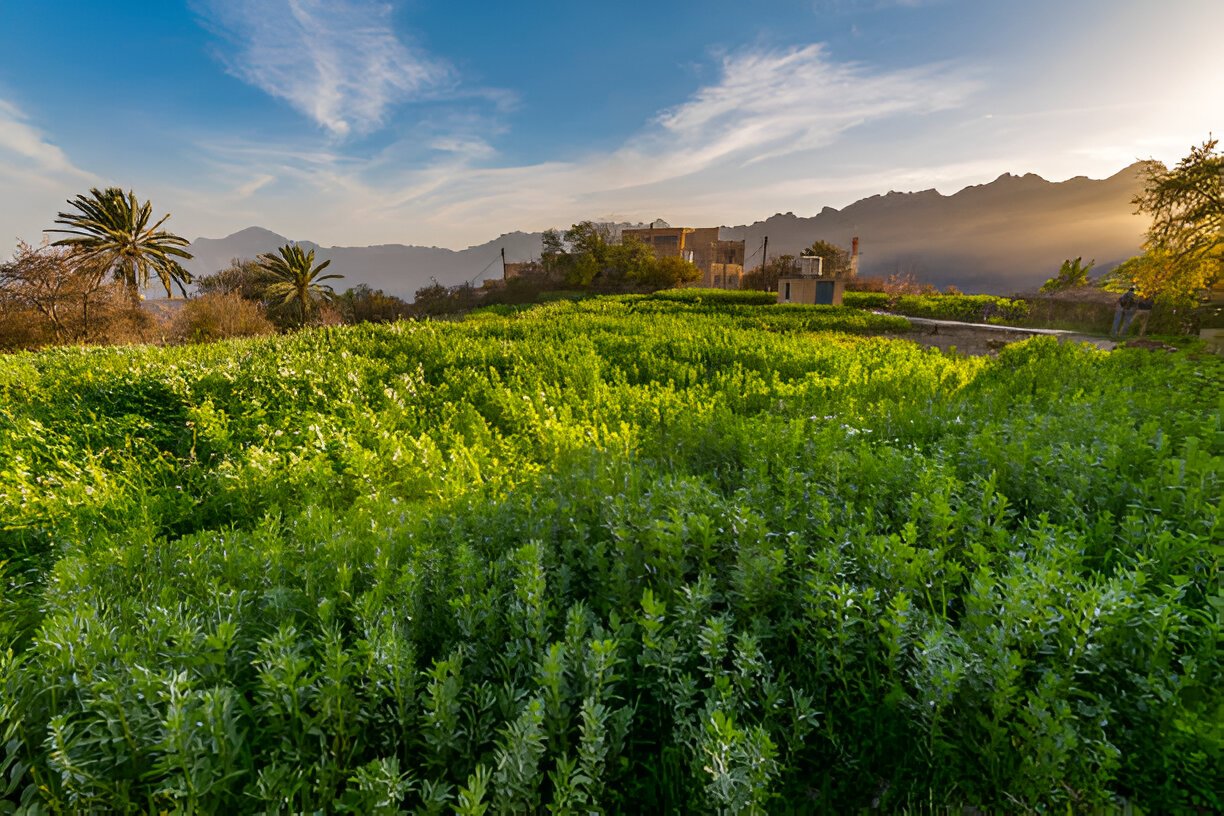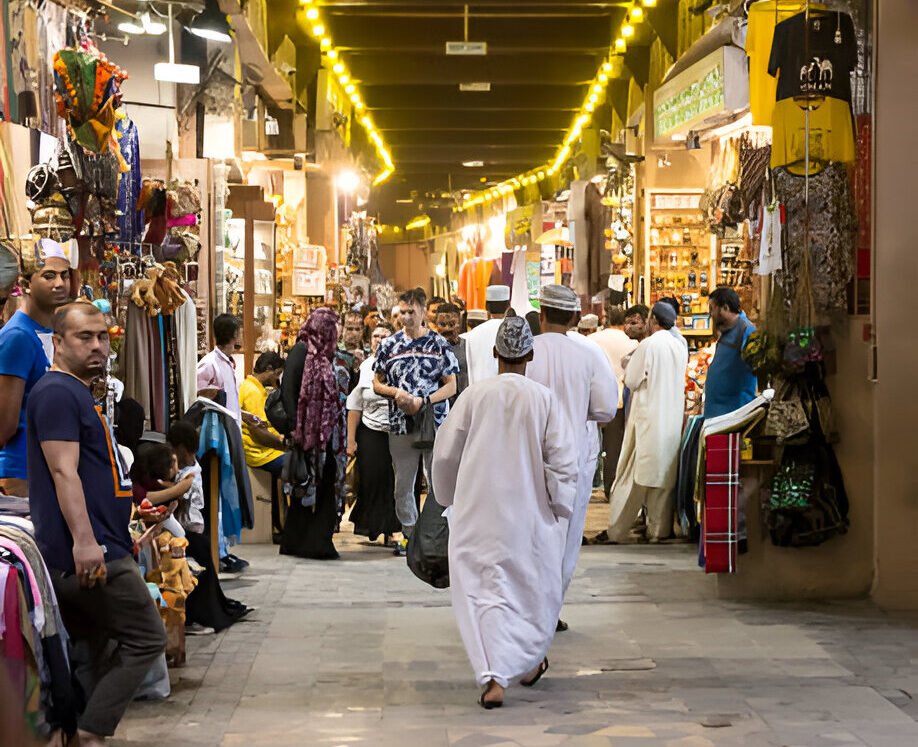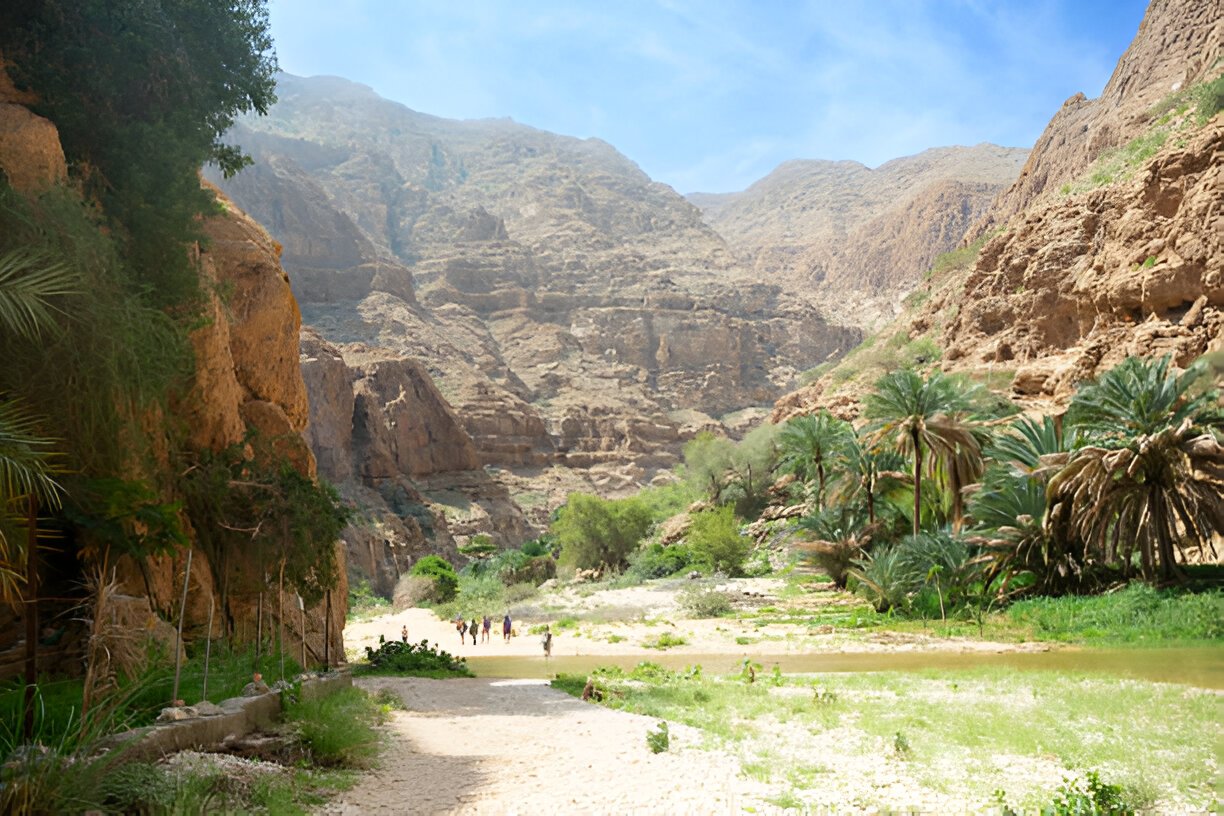
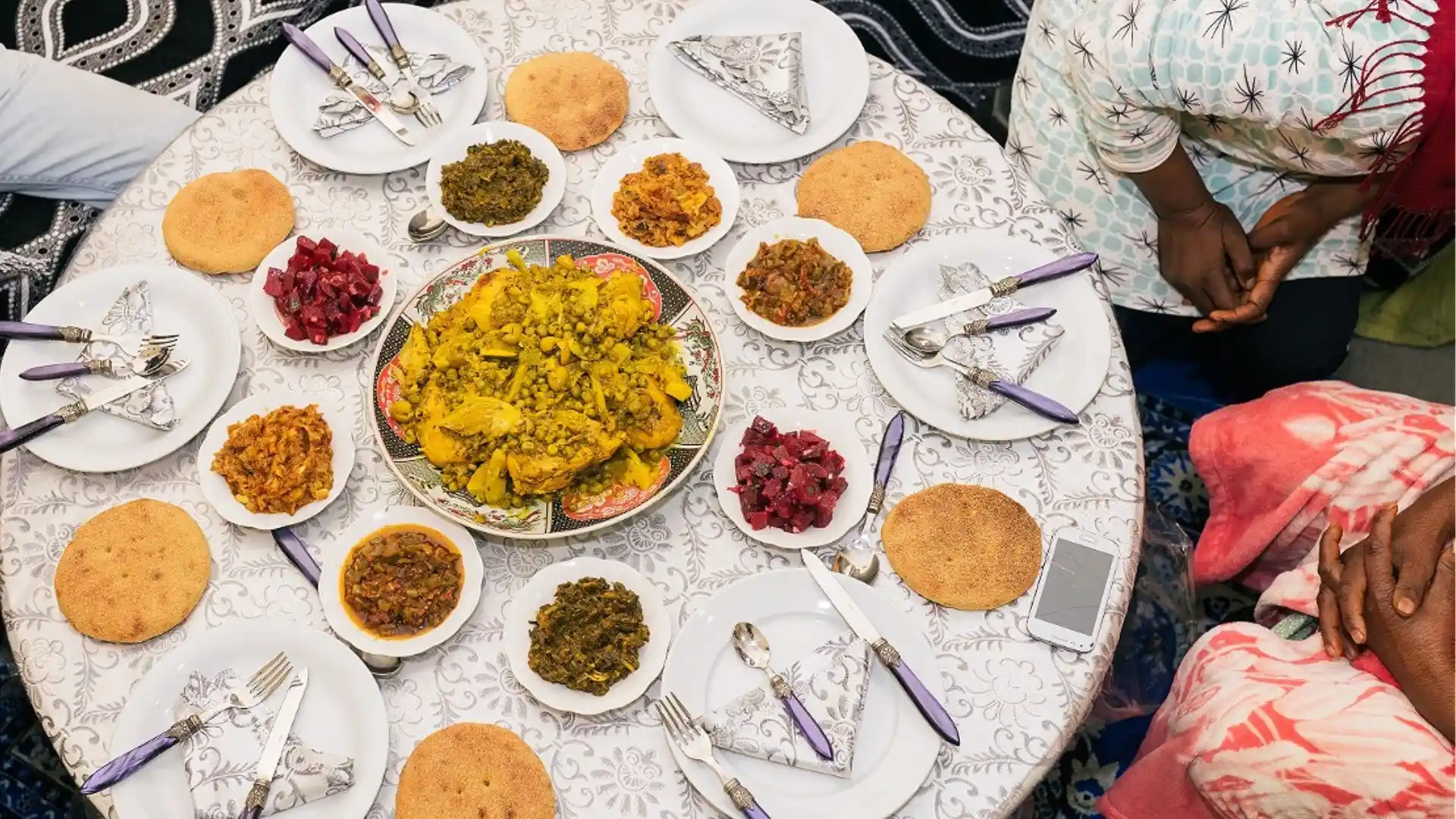
Oman, celebrated for its rich traditions, offers a unique dining culture rooted in deep heritage. Dining in Oman is about much more than food; it’s a ritual that has been preserved for generations, representing the warmth and hospitality of the Omani people. Understanding and respecting these customs enhances your experience and shows appreciation for the Omani way of life.
As an Omani proverb says, “Food is the most important part of any gathering,” highlighting the role of meals in fostering connections. This guide explores dining in Oman, from traditional seating arrangements to the meaning behind each dish.
At the heart of Omani culture is hospitality. When welcomed into an Omani home, the meal you are served is an expression of generosity and goodwill. Omanis take pride in making sure guests are comfortable and well-fed, often going out of their way to share their best food.
“To share food is to share love” is an Omani belief that underscores how meals bring people together. As a guest, expressing your gratitude for the hospitality shown to you is important and deeply appreciated.
Traditional seating is essential to the Omani dining experience. Many Omanis prefer to sit on the floor, symbolizing humility and a sense of equality. Remove your shoes as you enter the dining area and take a seat on the floor mat, typically arranged in a circular or rectangular fashion. In some households, men and women may sit separately, so it’s polite to follow the host’s lead.
The saying, “Sitting on the floor brings us closer to the earth,” reflects how Omanis stay connected to their heritage.
An important part of dining etiquette in Oman is using your right hand to eat, pass food, and serve yourself. In Omani dining culture, the right hand is considered clean, while the left is reserved for other tasks. Eating with your right hand is a mark of respect for Omani customs.
When eating rice or other traditional dishes by hand, use your right hand to scoop food into your mouth. Although it may feel unfamiliar at first, Omanis appreciate the effort of a guest trying to follow local practices.
“To eat with your right hand is to honor the food and the company” is a common Omani belief that conveys the respect associated with this practice.
In Oman, meals typically start with dates and coffee, an ancient symbol of hospitality. Dates are offered first, followed by “kahwa” or Omani coffee, setting the tone for a welcoming dining experience. After this initial offering, the main course is served, often featuring rice, meat, or fish accompanied by side dishes.
Guests usually wait until the host begins eating before they start, showing respect for the effort involved in preparing the food. “Dates and coffee are the key to an Omani heart,” reflects the symbolic importance of these traditional offerings.
Omani dining culture centers around communal meals. Large platters of food are placed in the center, allowing everyone to share. This practice fosters a sense of community and equality, as everyone takes from the same dishes.
When serving yourself, it’s polite to take small portions to avoid wastage, as food is highly valued in Oman. You can always take more if you’re still hungry.
“Sharing food strengthens bonds,” an Omani proverb, perfectly captures the spirit of communal dining.
Meal times are important in Oman, with lunch often around 1 PM and dinner following evening prayers. Punctuality is appreciated, as it shows respect for the host. During Ramadan, meal timing is even more significant, with Iftar, the meal to break the fast, served exactly at sunset.
“Time is of the essence” is an expression that resonates in Omani dining etiquette, where respecting meal times is a sign of good manners.
Dining in Oman is not just about eating; it’s also about engaging in conversation. Meals are a chance to share stories and connect with those around you. However, it’s important to keep the conversation respectful. Avoid sensitive topics like politics and religion unless initiated by the host, and instead, focus on light-hearted subjects or complimenting the food.
“Good food and good conversation go hand in hand” is a belief that emphasizes creating a positive dining atmosphere.
Concluding a meal in Oman involves gratitude. Thanking the host and expressing appreciation for the meal is customary. Some Omani households finish the meal with fruit, symbolizing abundance and prosperity. It’s polite to offer help with clearing the table, though this is often gently declined to allow you to remain a guest.
“A meal well-enjoyed deserves a proper thank you” emphasizes the importance of gratitude in Omani dining culture.
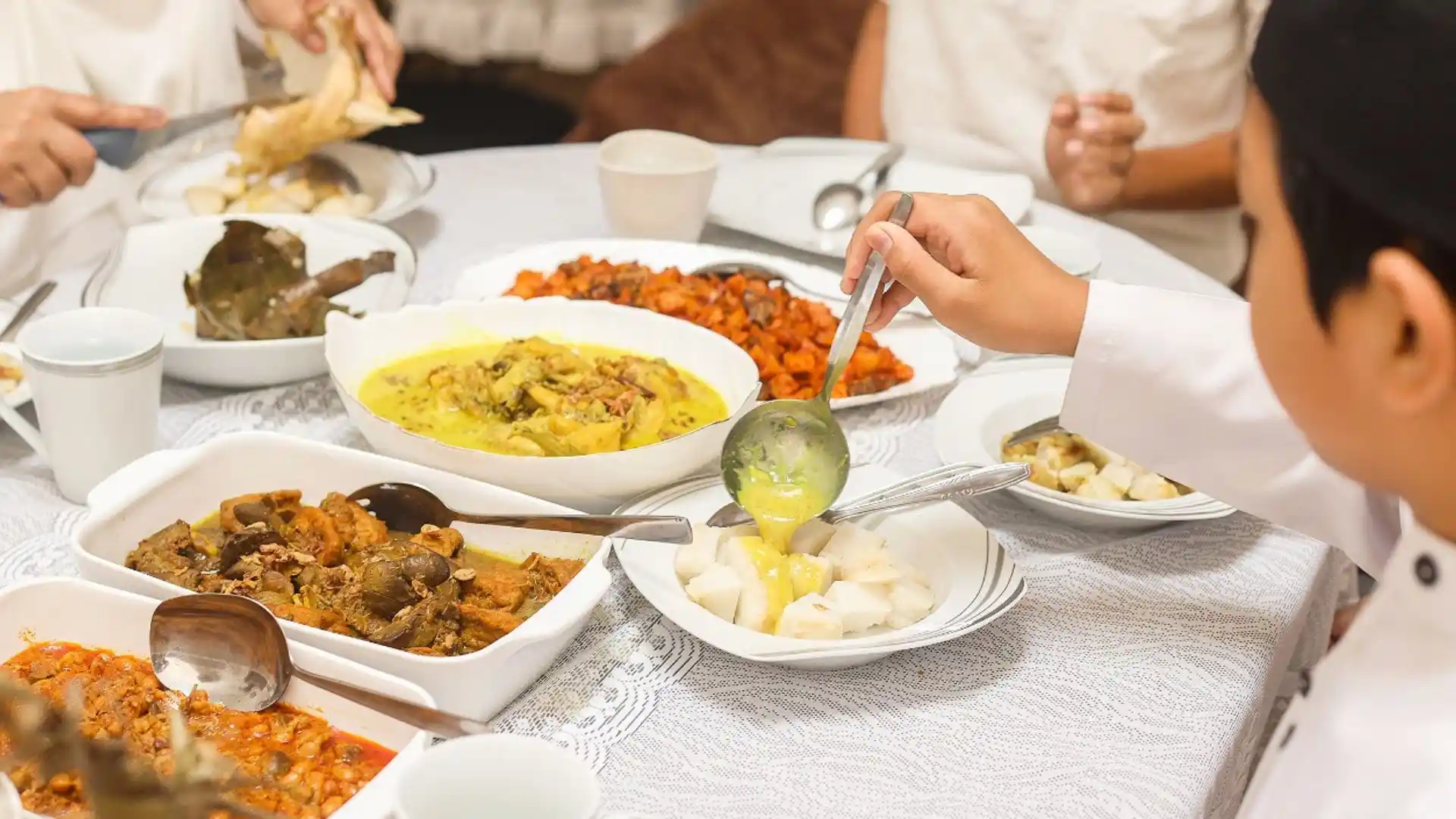
Special occasions in Oman, such as weddings and religious festivals, feature even more elaborate meals. Traditional Omani dishes like Shuwa (slow-cooked lamb) or Harees (a wheat and meat dish) are commonly served. During these events, guests may be personally served by the host as a gesture of honor.
“Feasting together on special occasions strengthens the fabric of society” reflects the social value of shared meals during celebrations.
While Omani dining traditions are often followed, modern restaurants may adopt a more relaxed approach. Still, values like respect for food, communal sharing, and polite conversation apply in both traditional and modern settings.
“Modern dining, traditional values” reflects how contemporary practices can align with Omani customs.
Islam greatly influences Omani dining culture, with meals beginning with “Bismillah” (In the name of God). Only halal food is consumed, and pork is strictly avoided. During Ramadan, meals are carefully timed, and special dishes are prepared for breaking the fast.
“As faith guides the heart, it also guides the hand at the table,” captures how religion and dining customs are closely connected.
Omani dining culture emphasizes respecting food, with wasting it being seen as disrespectful. A popular saying, “Every grain has a blessing,” reminds Omanis of the importance of appreciating each part of the meal.
Even in modern dining, finishing food or taking leftovers home is common practice. “Food is a gift, treat it with care” is a principle that reflects the Omani approach.
For those new to Omani dining etiquette, observing and adapting to the host’s practices is helpful. Omanis are generally understanding and patient with guests unfamiliar with their customs, so feel free to ask questions.
“Observe and adapt” is a simple approach that ensures respect for local customs.
Dining in Oman is an immersion into a culture of warmth and hospitality. Following Omani dining etiquette—from using your right hand to engaging in respectful conversation—creates a memorable experience and honors local customs.
“When in Oman, eat as the Omanis do” reminds us that embracing these traditions not only enhances the meal but also deepens connections with hosts and fellow diners.
Never miss any important news. Subscribe to our newsletter.

